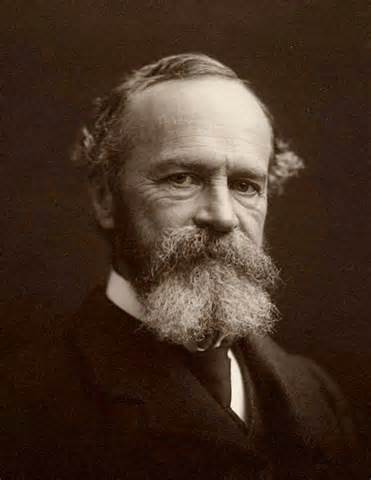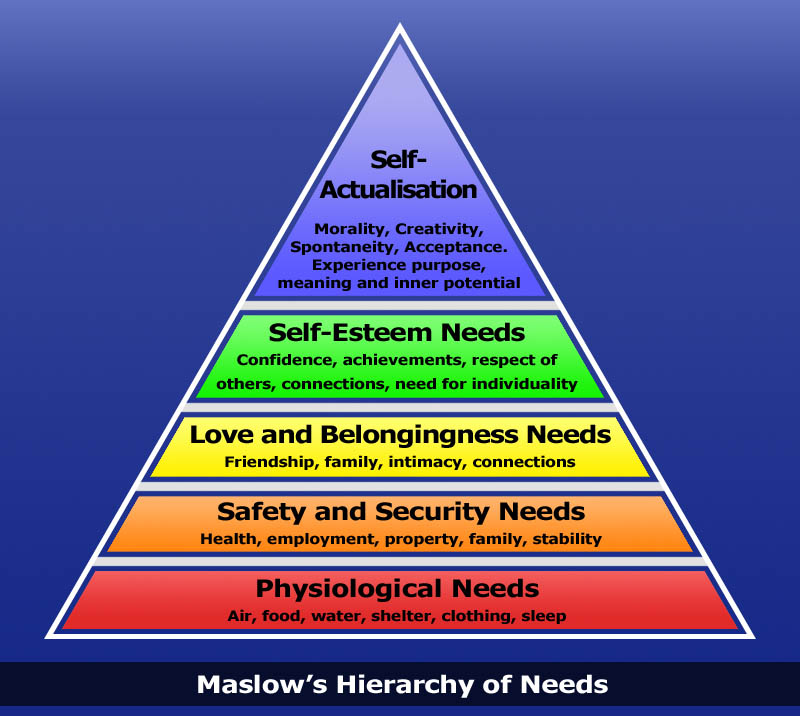| A | B |
|---|
| empiricism | the view that knowledge originates in experience and that science should rely on observation and experimentation. |
structuralism,  | early school of psychology that used introspection to explore the structural elements of the human mind |
functionalism,  | school of psychology that focused on how our mental and behavioral processes function - how they enable us to adapt, survive, and flourish |
| experimental psychology | the study of behavior and thinking using the experimental method |
| behaviorism | the view that psychology (1) should be an objective science that (2) studies behavior without reference to mental processes. Most research psychologists today agree with (1) but not (2) |
humanistic psychology,  | historically significant perspective that emphasized the growth potential of healthy people and the individual's potential for personal growth |
| cognitive neuroscience | the interdisciplinary study of the brain activity linked with cognition (including perception, thinking, memory, and language) |
| psychology | the science of behavior and mental processes |
| nature-nurture issue | the longstanding controversy over the relative contributions that genes and experience make to the development of psychological traits and behaviors. Today's science sees traits and behaviors arising form the interaction of nature and nurture |
| natural selection | the principle that, among the range of inherited trait variations, those contributing to reproduction and survival will most likely be passed on to succeeding generations |
| levels of analysis | the differing complementary views, from biological to psychological to social-cultural, for analyzing any given phenomenon |
| biopsychosocial approach | an integrated approach that incorporates biological, psychological, and social-cultural levels of analysis |
| biological psychology | a branch of psychology that studies the link between biological (including including neuroscience and behavior genetics) and psychological processes |
| evolutionary psychology | the study of the roots of behavior and mental processes using the principles of natural selection |
| psychodynamic psychology | a branch of psychology that studies how unconscious drives and conflicts influence behavior, and uses that information to treat people with psychological disorders |
| behavioral psychology | the scientific study of observable behavior, and its explanation by principles of learning |
| cognitive psychology | the scientific study of all the mental activities associated with thinking, knowing, remembering, and communicating |
| social-cultural psychology | the study of how situations and cultures affect our behavior and thinking |
| psychometrics | the scientific study of the measurement of human abilities, attitudes, and traits |
| basic research | pure science that aims to increase the scientific knowledge base |
| developmental psychology | the scientific study of physical, cognitive, and social change throughout the life span |
| educational psychology | the study of how psychological processes affect and can enhance teaching and learning |
| social psychology | the scientific study of how we think about, influence, and relate to one another |
| applied research | scientific study that aims to solve practical problems |
| industrial-organizational (I/O) psychology | the application of psychological concepts and methods to optimizing human behavior in workplaces |
| human factors psychology | the study of how people and machines interact and the design of safe and easily used machines and environments |
| counseling psychology | a branch of psychology that assists peole with problems in living (often related to school, work, or marriage) and in achieving greater well-being |
| clinical psychology | a branch of psychology that studies, assesses, and treats people with psychological disorders |
| psychiatry | a branch of medicine dealing with psychological disorders; practiced by physicians who often provide medical (for example, drug) treatments as well as psychological therapy |
| Wilhelm Wundt | 1879 opened the first psychology lab in Germany |
| William James | wrote the first psychology textbook, Principles of Psychology; founded branch of psychology known as functionalism |
| Mary Whiton Calkins | first woman president of the APA (american Psychological Association) |
| B.F. Skinner | behaviorist psychologists; studied rats and pigeons; big idea reinforcements |
| Sigmund Freud | BIG IDEAS-psychoanalysis ("the talking cure"); free association; id, ego, and superego; defense mechanisms |
| John B. Watson | behaviorist psychologists; stressed psychologists should only study OBSERVABLE behavior |
| G. Stanley Hall | opened the first psychology lab in the US |
| Abraham Maslow | humanistic psychologist; emphasized potential for self-growth; BIG IDEA- self-acutualization |
| Sir Francis Galton | 19th century psychologist studied how heredity influences a person's behavior |
| John Locke | English philosopher believed we are born a "blank slate" (tabula rasa); "a white sheet of paper that experience write upon" |
| phrenology | popular in the 1800's "the science of skull bumps"; discovered by Franz Joseph Gall |
| Hippocrates | Greek doctor that thought the mind or soul resided in the brain; believed that it was not composed of a physical substance; known as mind-body dualism (seeing mind and body as two different things that interact) |
| Plato | Greek philosopher that believed that we are and what we know are innate (inborn); "NATURE SIDE" |
| Nature Debate | idea that men are born, not made, who we are is innate, doesn't come from experience |
| Nurture Debate | Anything we know, we have learned through experience; Our mind is a blank slate (tabula rasa; John Locke) that the environment writes upon |
| Charles Darwin | theory of natural selection |